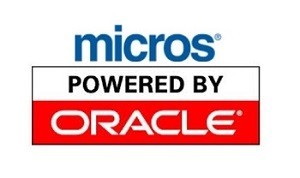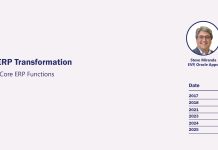Oracle announced a blockbuster deal with the proposed purchase of MICROS Systems for $5.3 billion, stepping up its push into the leisure, hospitality and retail vertical.
Since 1977 MICROS has been a leading applications and point-of-sale hardware vendor focusing on leisure, lodging and retail establishments. Typical customers range from quick service restaurants, multi-property and single-location hotels, casino operators, cruise lines and major retailers as explained in casinousa.com.
Download these reports containing profiles of MICROS in hospitality and retail verticals.
For Oracle, the deal will allow the vendor to sell more databases to a host of hotels, restaurant chains as well as retailers, all of which have been using MICROS hardware that comes bundled with Oracle database, MICROS POS systems and industry-specific applications for property management, sales and catering as well as back-office functions like workforce management.
The more of these eating, lodging, gaming and retailing facilities crunch through massive amounts of data, the more customer insights they can glean from such transactions and the more improvements they can make to the buying experience. In this case, more is definitely better for customers and the technology provider.
That fits perfectly with the Oracle vision of crafting and delivering its Engineered Systems – all running its powerful database and infrastructure technologies to handle an array of heavy-duty data crunching functions with ease and outstanding performance.
Already, MICROS products such as Simphony, 9700 HMS, and OPERA utilize Oracle database extensively and the purchase is expected to put a squeeze on competing database products such as Microsoft SQL within the MICROS installed base, potentially adding hundreds of millions of dollars in incremental database sales to Oracle over the next five to 10 years.
The more standardized the database environment becomes, the better results in terms of customer and operational insights these establishments can generate. It’s a win-win for both Oracle and these new and existing customers.
That’s the good news.
The bad news is that Oracle is also buying a vendor with plenty of legacy systems. Even though MICROS has done a fabulous job upgrading the IT environment of its hotel, restaurant and retail customers, it’s worth noting that the installed base of 330,000 sites at MICROS is littered with disparate systems, including many still running on Windows XP, an operating system that Microsoft no longer supports.
At a time when Oracle is touting its successes in the Cloud, the MICROS purchase raises questions about the We-Are-Going-To-Be-Number-1-In-The-Cloud strategy. The following table shows how much of a bump MICROS’ SaaS revenues – primarily in hosting – could deliver to Oracle’s Cloud applications revenues.
What MICROS Deal Could Mean To Oracle’s Top Line
Revenues, $M | Oracle 4Q14 | MICROS 3Q14 |
Hardware | 1466 | 79 |
On-Premise License | 3769 | 39 |
Maintenance | 4695 | 127 |
Cloud Applications/DB | 322 | 26 |
Source: Company Reports
For its fiscal 2013, MICROS generated $568 million in recurring revenues, 85% of which, or $482 million, was in the form of maintenance revenues and the remainder 15%, or $86 million, was coming from SaaS and hosting revenues. Though MICROS SaaS and hosting revenues have been growing faster than its maintenance business, its CEO Peter Altahef also cautioned during the latest earnings call that its SaaS revenues could fluctuate depending on the evaluation cycles of its legacy customers.
In our vendor database, Oracle could have acquired vendors – Demandware, Revionics, Red Book Connect to name a few – that would boost its Cloud applications revenues in the retail and hospitality verticals in a more significant way.
However it seems that the deal to buy MICROS is driven by near-term increase in hardware and maintenance revenues, rather than the strategic addition of Cloud assets, which may not fully manifest themselves for another few years.






